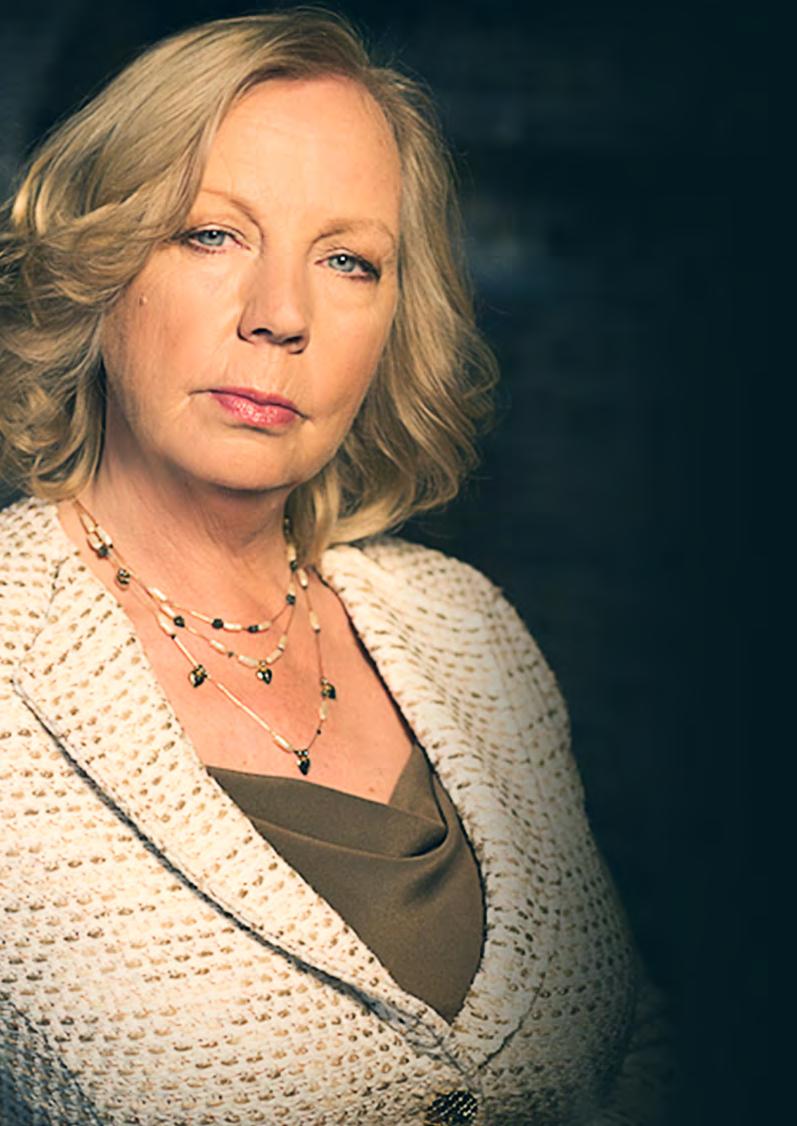
4 minute read
INTERVIEW WITH DEBORAH MEADEN
I’M IN
Advertisement
Deborah Meaden – entrepreneur, TV ‘dragon’ and passionate animal welfare campaigner – has become Compassion’s latest influential patron.
We were absolutely thrilled when, at the start of the year, Deborah Meaden agreed to become our patron.
Deborah, a highly successful entrepreneur and well-known investor on BBC Two’s Dragons’ Den, spends her time between London and her Somerset home. She is known for speaking out when it comes to animal welfare, and has a passion for wildlife. She is devoted to her own animals: cats, dogs, horses, pigs, sheep, geese, and “my girls –the chickens”.
Deborah first came across Compassion on Twitter, and regularly shares our tweets. She engages with her social media followers on a host of farm animal topics, including the wider impacts of factory farming on the environment and human health.
In the last year, she has spearheaded our End the Cage Age campaign: appearing in our award-winning film, ‘Dear Humans’, and leading a 100,000-strong petition that called for a UK ban on cruel caged farming and secured a Parliamentary debate (see page 14).
In conversation with Compassion’s Global CEO, Philip Lymbery, Deborah said she has been an animal person ever since childhood. “I had a snail hospital. The thrushes in our garden would smash the snail shells, so I would pick the snails up and hide them under a plank of wood – the ‘hospital’. So, I’ve always, always loved animals, but I have no idea where it came from.”
She admits she is lucky to know about farming systems, having had animals, and she firmly believes that telling people to stop eating meat isn’t an overall solution to improving animal welfare: “That isn’t going to happen. People are going to eat meat. So, we need to be a bit more progressive – we need to say, ‘okay, so how are we going to make sure that the animals have got a high standard of welfare?’”
Deborah feels passionately about our Honest Labelling campaign, calling for meat and dairy products to be clearly labelled by farming system, to help consumers make informed choices.
“We all want to be able to make choices, but a product that’s just got a load of labels and logos on it, doesn’t help anyone. There needs to be an understanding of what’s important to be on the product, what actually matters to people, and where can they find that information out. At the moment, I’m not sure they know where to go. They’d have to sit down for an afternoon and Google ‘Organic’, ‘Free Range’, ‘Red Tractor’ and work it out for themselves. The truth about
factory farming isn’t advertised on food labels because it’s an unsavoury one but we all need to be able to make an informed
choice.”
On animal welfare issues close to her heart, Deborah explains: “When I think about our animals, there are two things I worry about: the life they live and the way they die. Animals should be able to exhibit normal behaviours. We shouldn’t be farming animals that cannot be kept in an environment that mimics their own and where they cannot exhibit natural behaviours. The respect they are given when slaughtered is also hugely important to me, so I welcome CCTV in slaughterhouses. I think there should be more local slaughterhouses too.”
Which leads us on to long distance live transport: “It’s ridiculous that a farmer down the road from here, for example, has to send animals many, many miles away, just for slaughter. It’s the same as live exports: having to load them up for their last journey and take them hundreds of miles to fatten up again or slaughter, on the other side of the country or across the world. Crazy.”
So what does Deborah think about the work of Compassion in World Farming? “I greatly respect
Compassion’s aims and the work that you do. It’s so important to educate and empower people to make informed choices and to help them understand how they can make a difference.
“The biggest question I get asked on Twitter when I show people something is ‘What can I do?’ Nobody wants to feel constantly helpless.”
Whilst horrified by the treatment that so many farm animals receive, Deborah is optimistic that, as a species, we can change – and she believes education is key: “We need to teach very early on, about climate change and food nutrition. Eat less and eat better, that’s it. We throw away 30% of the contents of our fridge and then we complain that we haven’t got enough money to spend on the things that we want to do. That’s crazy! That is actually mad!”
Read more of Deborah’s conversation with Philip Lymbery at ciwf.org.uk/DeborahMeaden








